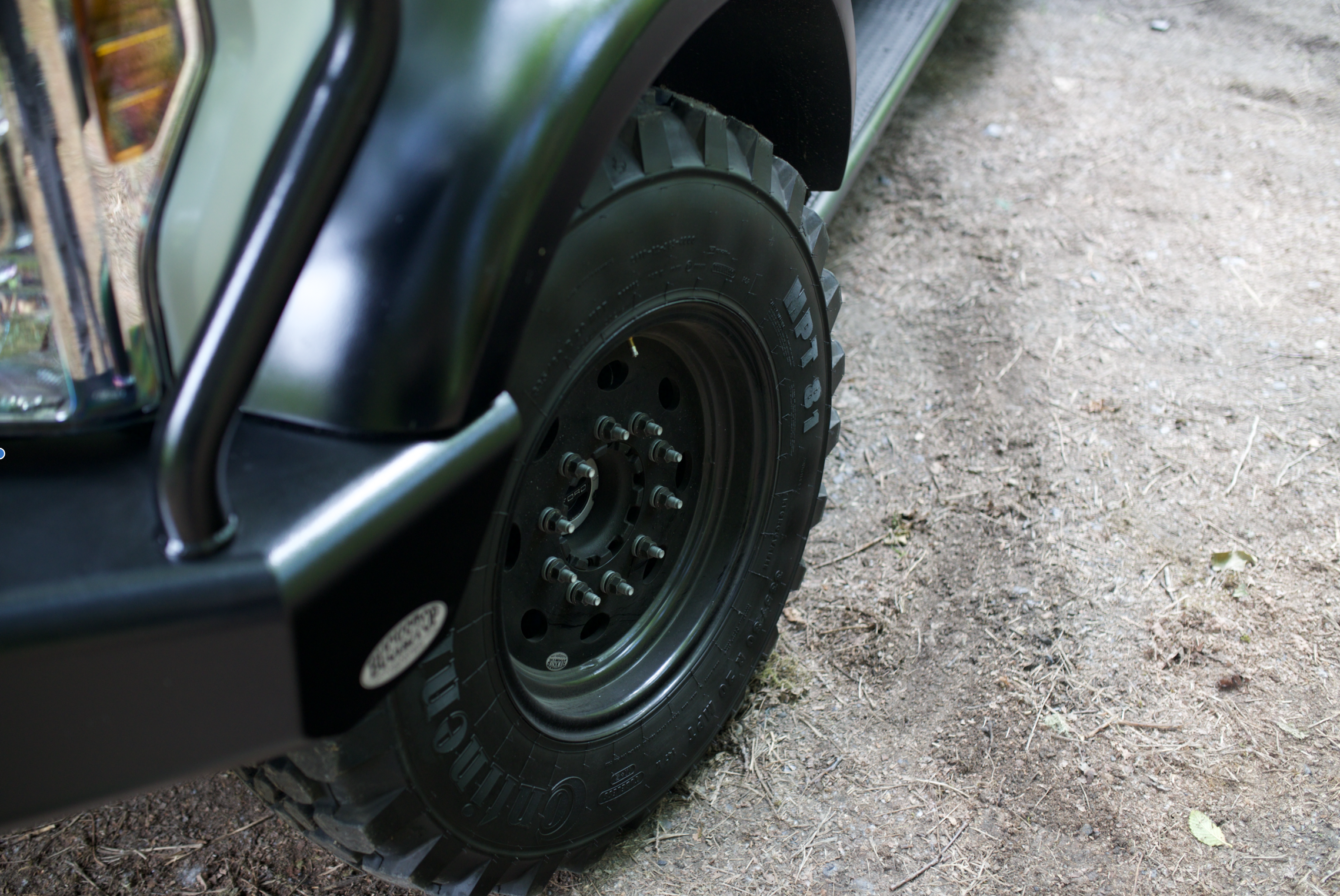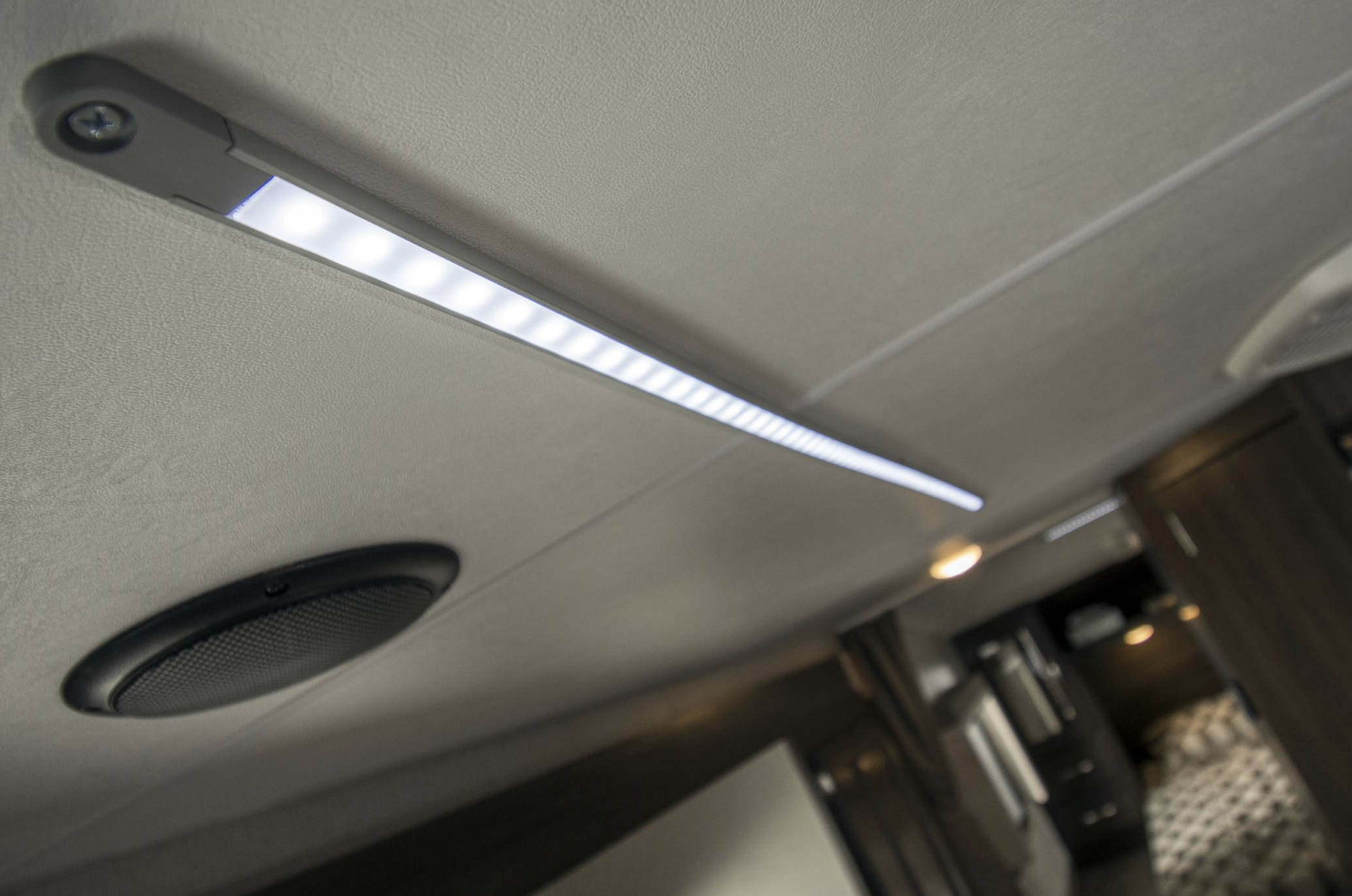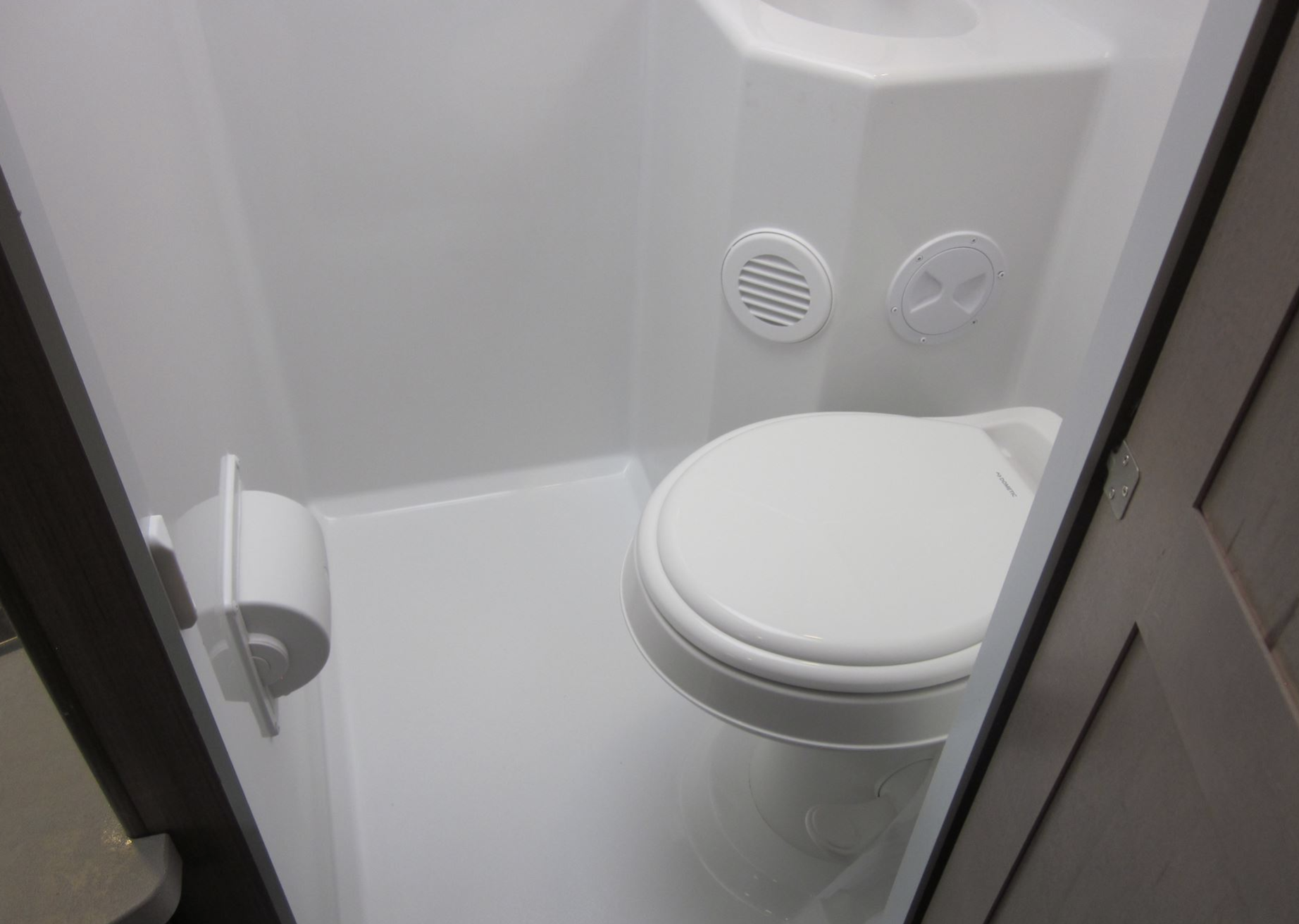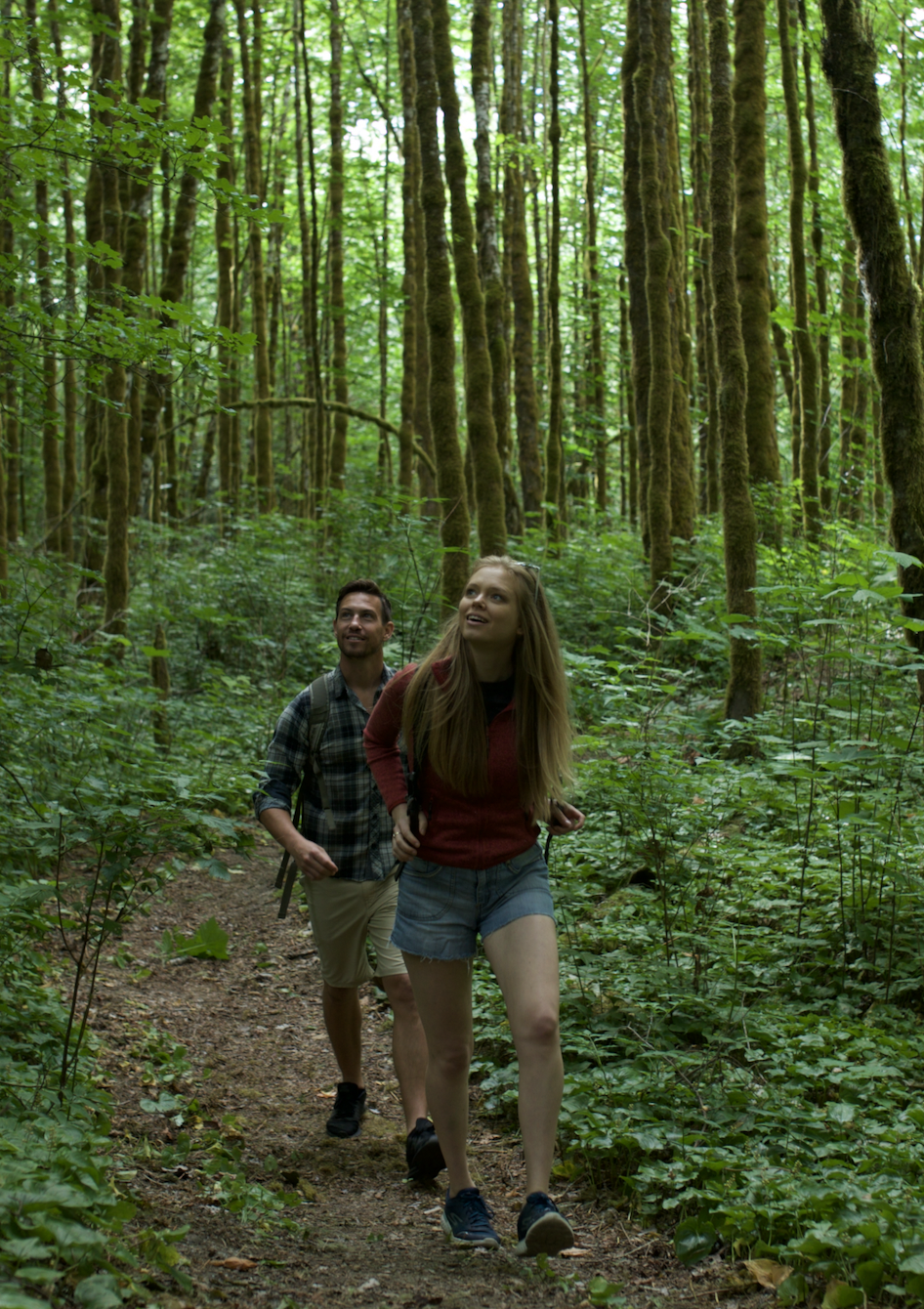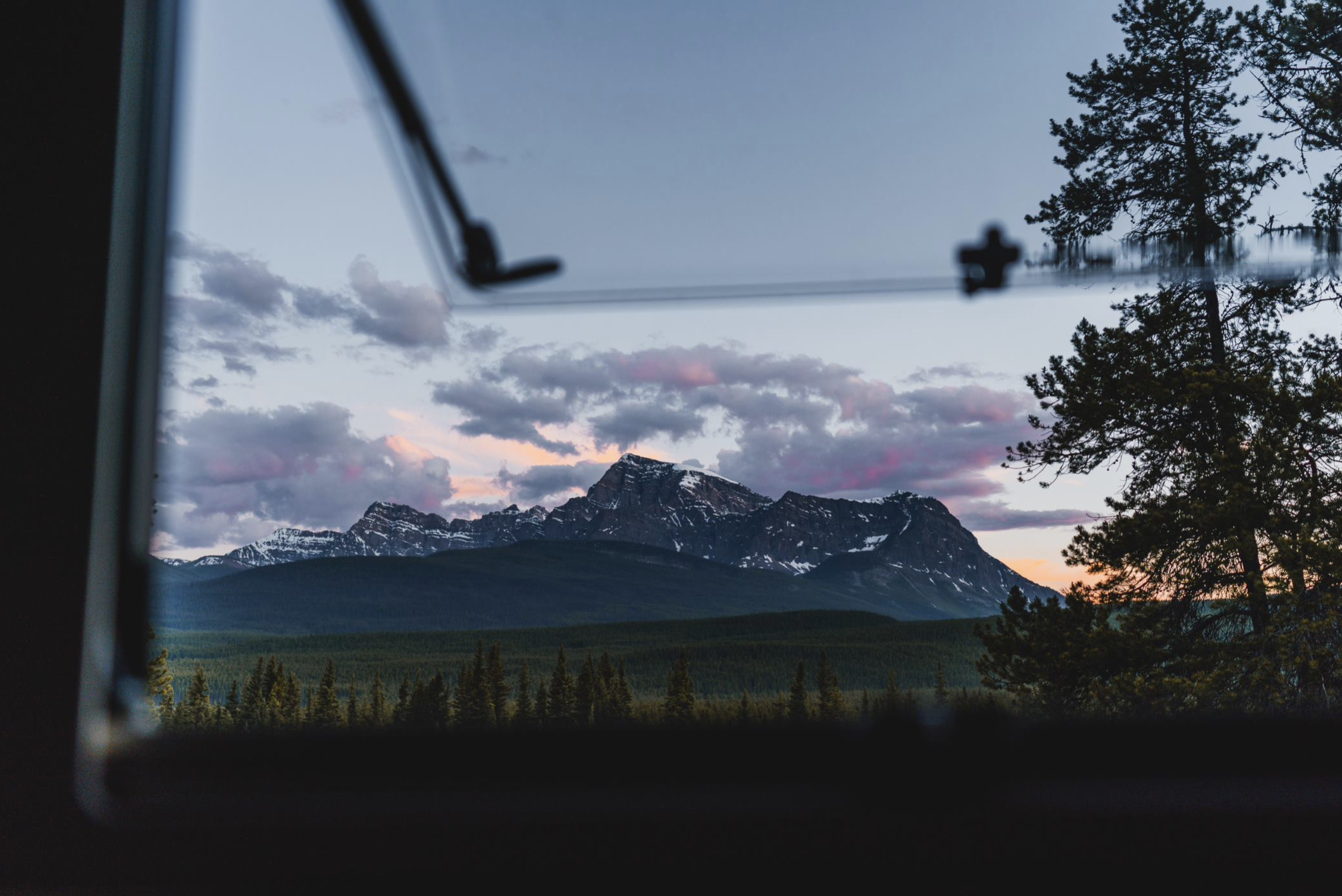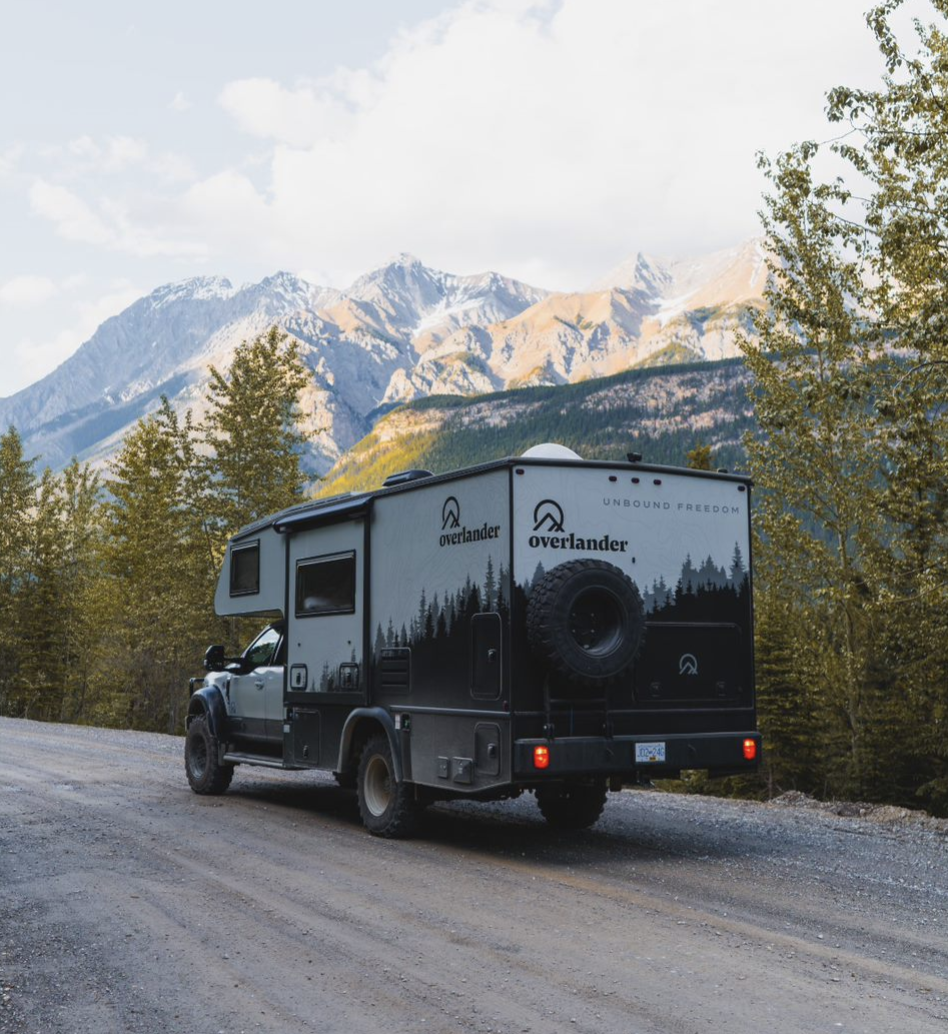Off-Grid RV Camping: Everything You Need to Go for the First Time
The Overlander ERD exploring off-the-grid in Alberta, Canada
Commonly known as boondocking, free camping or wilderness camping, off-grid RV camping is often described as the best way to camp because of its seclusion, peace, and serenity.
There is something special about setting up camp without any neighbours in sight and being completely self-reliant in the wilderness. You can get an entire landscape all to yourself without the hassles that come with booking a campsite, lining up for a shower, and trying to sleep next to loud neighbours.
Camp sites are often crowded in the summer season and can feel more like a busy town of RV campers rather than a peaceful escape. For many, this defeats the purpose of camping and that is why wild RV camping is becoming more and more appealing. People want to fully immerse themselves into nature and with the right equipment, they can camp off-the-grid comfortably for long periods of time.
This article explores the necessities needed to RV camp off-the-grid for the first time whether you are camping in a truck bed camper, trailer, or motorhome. There are some key components that will give you comfort, freedom and peace of mind during your adventure deep in the woods, desert or mountains. Having them will mean the world is truly your oyster!
So why not give wild camping a try, it’s not as hard as you might think. The doors to overlanding, 4x4 camping, or just camping on secluded BLM land are open. With the right preparation, equipment and knowledge, you can explore new faraway places and take your adventures to the next level. So, let’s get to it!
10 Things You Need Before Going Off-Grid RV or Truck Camping for the First Time
Good Tires + A Spare
Off-grid RV camping often means traveling outside of cell service, main roads, and basic amenities so you need to be prepared to change your own tire if disaster strikes. A flat tire could have you stuck for some time so make sure you bring a spare for your adventure vehicle.
Overlander ERD Military-Grade 41” Tires
If you are overlanding, the terrain will be rough so good tires are a non-negotiable. You’ll also notice most wild camp spots are down long, unmaintained forest roads or uneven, rocky desert terrain. Ensuring you have the equipment to change a tire is a must before departing because your chances of popping one are much higher under these circumstances. Make sure to check your tires before leaving on any adventure and never forget the spare.
2. Batteries
Most RVs and truck campers come with batteries that store power for 12V appliances, lights, ventilation, water pumps and more. All batteries have different capacities, so getting to know these capacities first is crucial to understanding how much power you can use while off-the-grid.
Scout Olympic’s portable Yeti 1000 lithium power station
It is also important to have a conservation mindset when off-grid camping. Since you are not connected to an unlimited electricity source, if you over-use your power you can run out. Having a backup power supply is always a good idea. There are plenty of portable power stations on the market these days and these are very handy for off-grid camping of any sort.
Make sure you maintain and re-place your batteries when needed. You don’t want to find out one has died for good when you are miles out from the nearest town. Off-grid RV or truck camping means that you need to be on top of things like this. You need power to supply your lighting, appliances and more, so ensuring the batteries are full and functioning before leaving is crucial.
3. Solar Power / Generator
Having a backup source of power is a must for off-grid RV camping. It allows you to stay in the wild for longer and use your appliances without the fear of running into a power shortage. Again, preparation is key and having a back-up plan is always a good idea.
Solar Panels on a 2020 Adventurer Camper
Solar panels are a really popular option in the RV and truck camping industry, and are usually offered as an additional feature or aftermarket add-on. Not only do they require little to no work after they are installed, but they are quiet, hidden, and environmentally-friendly. Solar panels offer limitless, free power under the rays of the sun.
Generators are also an option for additional power. Some adventure vehicles come with a built-in generator. They’re a good back-up option for solar power too if you plan to do a lot of extended, off-grid camping trips. Depending on how much power you plan on using, having both might be best. As mentioned in the Battery section above, there are plenty of portable power storage options out there today that act as generators. Just make sure they’re charged before you go!
4. LED Lighting
Conserving power is key to RV boondocking. Converting to LED lights is a wonderful way to conserve power because LED lights use 90% less power than incandescent bulbs. . LED lights don’t produce heat, which is especially great if you’re wild camping in the summer. Overall, they last about 50x longer than traditional bulbs!
Interior LED lighting inside the 2020 Eagle Cap 1165
Since there won’t be any city lights off-the-grid, investing in some external lighting for your RV or truck camper is a smart idea. LED solar string lights are a great option and they create a cosy atmosphere outdoors. You can find them almost anywhere, even on Amazon. Some adventure vehicles come with external lighting installed and these are highly advantageous when you’re off-grid.
5. Extra Water Storage
Ensuring you have an adequate amount of water for your off-grid journey is a non-negotiable. While the water capacity in adventure vehicles varies greatly, it’s good to have some back-up especially if you are heading somewhere with no freshwater access. Always bring more water than you think you need when off-grid RV camping.
Lifesaver 4.9 gal portable Water Storage in the Scout Olympic
If you are heading somewhere with fresh water, consider investing in a high-quality water filter. Some portable water storage even come with it built in (like the Lifesaver in the Scout Camper above). If you’re heading somewhere like the desert that has little to no access to fresh, potable water, make sure you bring additional water with you. Clean drinking water is a necessity and you don’t want to have to run back to town because you didn’t bring enough water.
6. Heating
If you’re camping in the mountains or the desert, this is especially important. Even in the summer, temperatures can suddenly drop once night falls. A propane heater can make a huge difference in your off-grid camping experience.
Some RVs, trailers and truck campers have furnaces built-in, but if not, you can always purchase a portable propane heater. Keep in mind that furnaces are energy demanding, so if you’re off-the-grid it’s wiser not to use it unless absolutely necessary. A portable propane heater has no energy demand so it’s a better option when wild camping.
Newport Real Flame 45 BTU Fireplace in a Scout Camper
Remember if you use a propane heater, you need to have proper ventilation. Read the instructions of your heater carefully and take the right precautions.
7. Toilet
If your adventure vehicle does not have a toilet, you’ll have to buy a portable one since you’ll be miles from the closest bathroom. There are lots of great options out there that require no power like the Dometic 2.6 gal. Even though you are wild camping, you must respect the regulations of the land you are in and commit to leaving no trace of your stay behind.
2020 Adventurer 86FB Wet Bath
8. Safety First
Make sure all your safety equipment, like your smoke and carbon-monoxide detectors, are functioning before leaving. Bring a first aid kit and extra medicine you might need. Bring a map and tell somebody where you are going. Pack some tools just in case.
Prepare yourself for anything that might go wrong since you will be far from help. It’s always better to be over prepared when off-grid rv camping.
9. Research & GPS
The next step is the fun part. Pick a place on a map and decide where you are going! There are a lot of resources out there that share remote camping locations and off-the-grid slices of heaven. Remember to do your research thoroughly and buy a map since you most likely won’t have service where you are going.
Investing in a GPS or Satellite phone is highly recommended. Garmin has a an all-terrain GPS device called the Overlander which is specifically built for off-road navigation. Satellite technology like their Inreach is also a a great choice because it gives you a way to stay in touch when camping off-the-grid. An Inreach can track and share your journey, navigate your route, and send an SOS signal if you’re in an emergency to a 24/7 global monitoring system. It’s a worthy investment that will offer you support and safety on your off-road journeys.
10. A Good Mindset
Off-grid RV campers become custodians of the environments they visit. There are no camp hosts in the wild to clean up and manage the site. The responsibility rests on you. Make sure you leave no trace and take all your garbage home with you. Remember that there will be no garbage or dump stations nearby so ensure you have room to take your waste back out.
As mentioned, off-grid camping requires shifting your mindset towards conservation. Without water, sewage, or power hook-ups, you are self-reliant out there and have limited resources. Be mindful with how you are using your water and power, and check their levels as much as possible. If you are running low, it’s best to start packing up and go back to town or home to stock up.
The more you go off-grid rv camping, the better you get, so start small and learn as you go. A trial run is never a bad idea. Make lists and be prepared. Don’t take unnecessary risks and do location research before leaving to prevent getting lost somewhere new.
And of course, if you’re new to this, have fun and keep an open mind!
With the right knowledge, equipment, and preparation, you’ll be able to go further than ever before and explore the wildest landscapes. You’ll probably fall in love with this new way to adventure and never want to come home.
Have fun, be safe, and enjoy the luxuries of camping in your RV off-the-grid!


